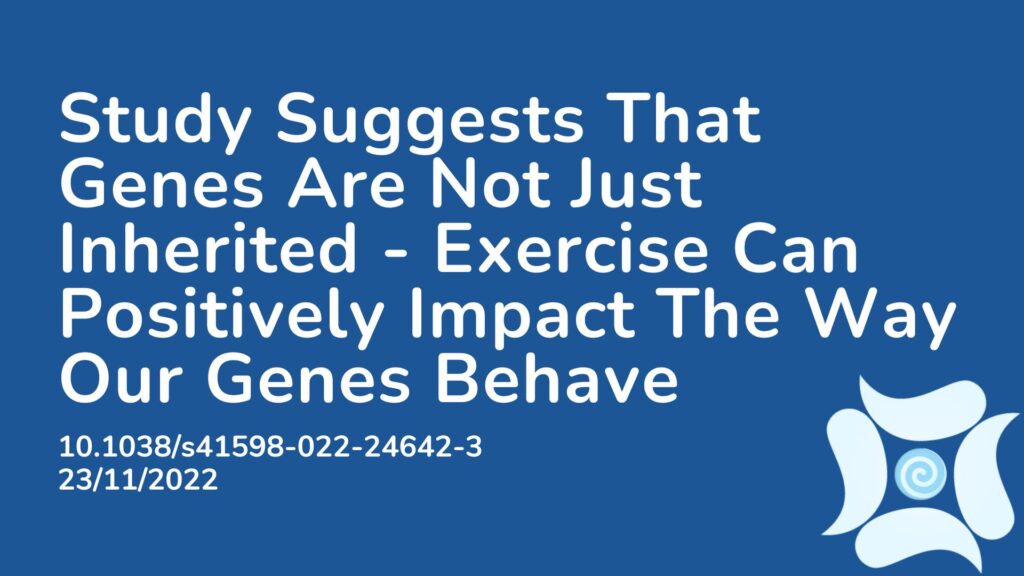Summary:
A new study on twins has shown that consistent exercise can change epigenetics, which is the way in which our genes behave, regardless of the genes that have been inherited. The study looked at identical twins, since they have the same genetics, and found that the sibling who was more physically active out of a set of twins had reduced risk of diseases such as cardiovascular disease, diabetes and stroke. There were also differences found in their genomes and the way their genes expressed themselves. This study implies that the markers that indicate metabolic and cardiovascular diaseses can be influenced by lifestyle choices and is not just entirely dependent on inherited genetics. This is an extremely interesting and important piece of research as it suggests that we can modify the health we have inherited by exercising and will prompt further research into other modifying lifestyle behaviours such as diet and its role on our epigenetics.
Abstract:
An epigenome-wide association study (EWAS) was performed on buccal cells from monozygotic-twins (MZ) reared together as children, but who live apart as adults. Cohorts of twin pairs were used to investigate associations between neighborhood walkability and objectively measured physical activity (PA) levels. Due to dramatic cellular epigenetic sex differences, male and female MZ twin pairs were analyzed separately to identify differential DNA methylation regions (DMRs). A priori comparisons were made on MZ twin pairs discordant on body mass index (BMI), PA levels, and neighborhood walkability. In addition to direct comparative analysis to identify specific DMRs, a weighted genome coexpression network analysis (WGCNA) was performed to identify DNA methylation sites associated with the physiological traits of interest. The pairs discordant in PA levels had epigenetic alterations that correlated with reduced metabolic parameters (i.e., BMI and waist circumference). The DNA methylation sites are associated with over fifty genes previously found to be specific to vigorous PA, metabolic risk factors, and sex. Combined observations demonstrate that behavioral factors, such as physical activity, appear to promote systemic epigenetic alterations that impact metabolic risk factors. The epigenetic DNA methylation sites and associated genes identified provide insight into PA impacts on metabolic parameters and the etiology of obesity.
Article Publication Date: 23/11/2022
DOI: 10.1038/s41598-022-24642-3




